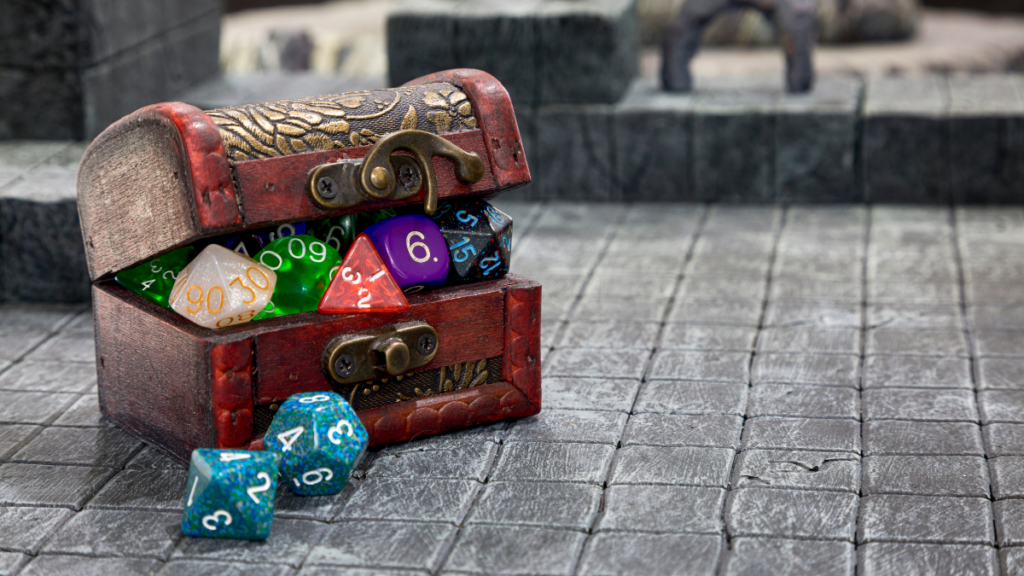The publisher of enormously popular tabletop role-playing game Dungeons & Dragons is retreating from its plan to tighten the company’s intellectual property licensing rules after droves of its players and fans vowed to boycott all D&D products if the new rules went into effect. The retreat, and subsequent apology, by rights holder ‘Wizards of the Coast’ is the latest delicate maneuver by well-known public-facing companies who find themselves balancing the fair use of their legally owned IPs with potentially damaging vitriol from consumers.
Understanding Wizards’ Open Game License
As the most popular role-playing game in history, Dungeons & Dragons and its many characters, worlds, and histories have been legally utilized by its players for use outside of the game’s confines since Wizards of the Coast created a public copyright license for D&D in 2016. Upon the advent of this ‘Open Game License,’ players and content creators have been free to use the game’s mechanics, rules, and lore without legal reprisals.
However, a new game rules update being actively tested by WotC called ‘One D&D’ was leaked in December of 2022 and, along with it, an apparent restructuring of the company’s Open Game License. This new license, known as ‘OGL 1.1’, would have superseded the original license and reversed the company’s open use stance, forcing content creators and online D&D software creators to log their profits and pay royalties to Wizards of the Coast. The previous license that promised a “perpetual, worldwide, non-exclusive license” to the Dungeons & Dragons game system was to be re-characterized as “no longer in force.”
Bad Press, Level 100
The leaked document sparked immediate outrage among the gaming community, with thousands of players signing an open letter to WotC protesting the new license’s terms and many popular third-party creators announcing that they would no longer support the D&D brand should the proposed license go into effect. So many fans unsubscribed from WotC’s official ‘D&D Beyond’ digital companion platform that the website reportedly crashed temporarily due to extreme traffic and overloaded servers.
Ultimately, Wizards of the Coast retracted their proposed rule changes less than a month after the document was leaked and issued a public apology. As part of its explanation, the company said they regretted the incorrect implication that they meant to profit from content and software creators’ work through its open use license and clarified that related language in the proposed update was only included to protect themselves from bad actors who might attempt to muddy the waters of IP law and accuse WotC of stealing their works when the reverse was actually true.
Private Rights vs. Public Image
With the air having cleared somewhat since Wizards’ gaming gaffe, it appears that its apology has been generally accepted by the community at large and the general use of the IP has remained at status quo. That said, this very public quarrel between a rights holder and its army of rights users signifies the tightrope that many owners of hugely popular IPs are often forced to walk to maintain customer loyalty and positive brand image.
Interestingly, from a purely legal standpoint, Wizards of the Coast was well within its rights to update its usage license, manage its property, and create whatever restrictions it saw fit in order to protect the Dungeons & Dragons IP from improper and illegal use. The fact that OGL 1.1 was leaked rather than released also strengthens the company’s claim that it intended to first make the document’s language available for public comment before officially ratifying it. Furthermore, the company had hinted at possible usage changes the month before OGL 1.1 leaked, with WotC President Cynthia Williams noting in an investor meeting in December 2022 that Dungeons & Dragons was more popular than ever but that its licensing structure contributed to the brand being “under-monetized.”
Backpedaling By the Book
Of course, as well-intentioned as Wizards may have been, the threat of bad press, boycotts, and diminished revenue was ultimately reason enough to not only walk back the proposed OGL 1.1 changes, but also prompt the company to release OGL 1.2. This even newer set of D&D rules will operate under a Creative Commons copyright license, allowing for “perpetual and irrevocable” use of the brand for products created under the original OGL 1.0. While this particular foray into better positioning the D&D brand to capitalize financially on its popularity may not have proved fruitful, it’s safe to say that it may just be a matter of time before Wizards of the Coast attempts another, more diplomatic approach. After all, presidents of companies who believe their brand to be “under-monetized” don’t tend to take their situation lying down.
Do you have intellectual property, inventions, and/or trade secrets that you wish to protect, maintain, and utilize efficiently and successfully? Richards Rodriguez & Skeith’s IP attorneys may be able to help. Contact us today to discuss your options!
